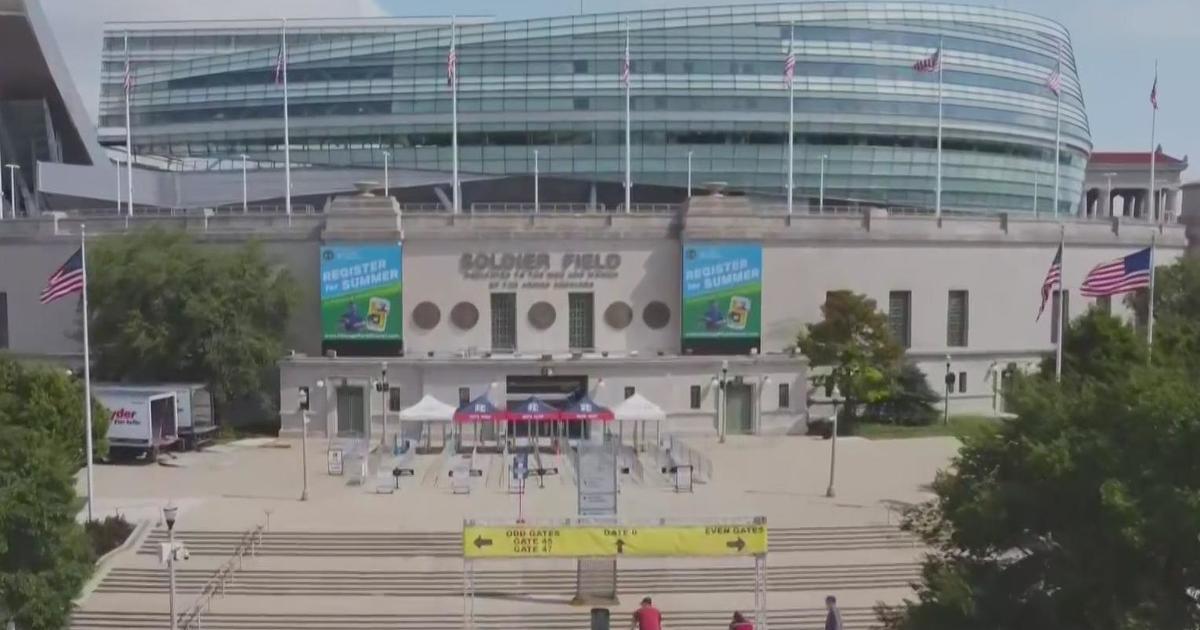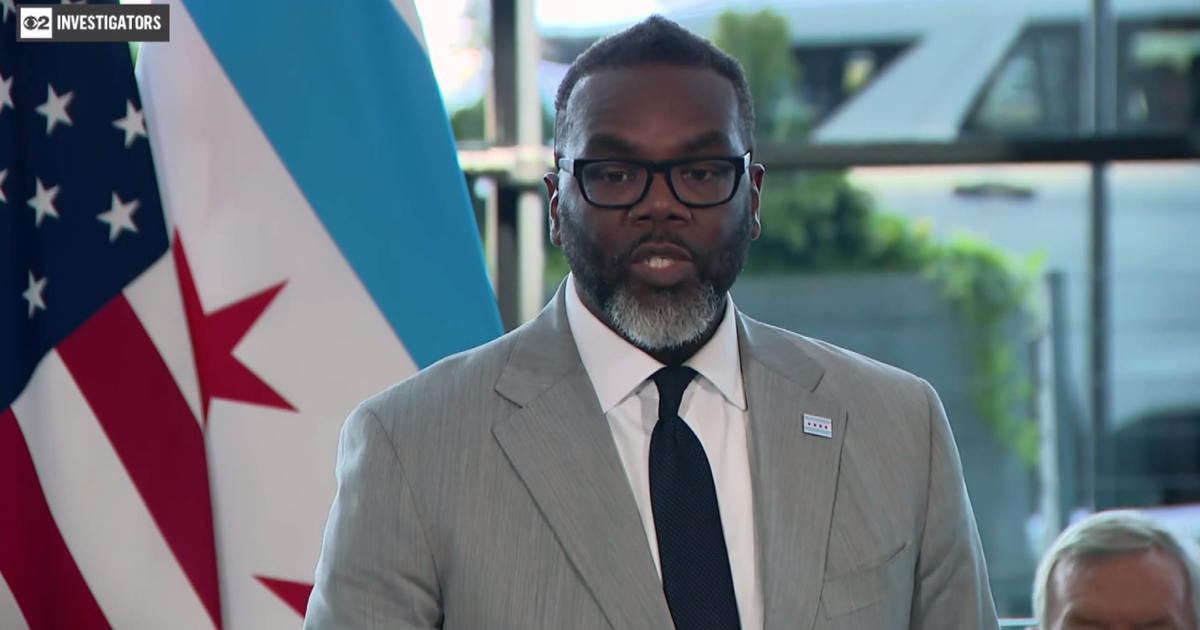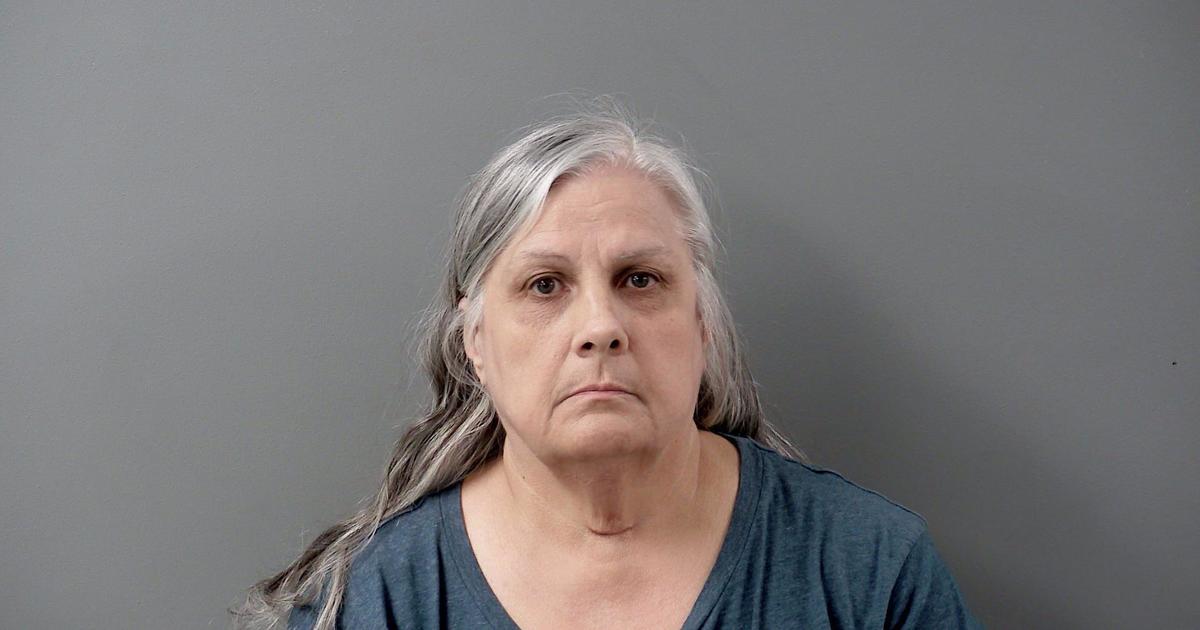Emanuel To Aldermen: Raise Property Taxes, Or Lay Off Cops And Firefighters
Updated 09/22/15 - 6:28 p.m.
CHICAGO (CBS) -- Mayor Rahm Emanuel told aldermen Tuesday the city must raise property taxes by $543 million to shore up police and firefighter pension funds, or face laying off thousands of firefighters and police officers.
The mayor's budget plan includes phasing in that $543 million property tax over the next four years, with the bulk of it scheduled for this year. He also proposed a new garbage collection fee, and a bevy of other new taxes and fees, as he aims to eliminate the city's structural budget deficit, and solve the city's pension crisis. Emanuel also called for an additional $45 million property tax hike to fund school construction.
If approved by at least 26 aldermen, the mayor's budget plan would amount to what analysts have called the largest property tax hike in modern Chicago history.
Emanuel called the proposed property tax hike a "last resort" to avoid massive cuts to essential services.
The mayor told aldermen the bill has come due for the years when the city paid as little as possible toward its growing pension obligations, and unless they want massive layoffs at the Police Department and Fire Department, his proposed property tax hike is needed.
Emanuel said meeting police and firefighter pension obligations through spending cuts alone would mean laying off 2,500 police officers -- 20 percent of the current force -- and 2,000 firefighters -- about 40 percent of the force. The city also would have to close 48 fire stations, reduce trash collection from once a week to twice a month, eliminate recycling services altogether, stop repairing potholes, halt rodent abatement programs, and eliminate graffiti removal.
"In short, if we were to fund our pensions with cuts alone, our city services would become unreliable. Our City would become unlivable. And that would be totally unacceptable," he said. "We must solve our pension challenge and there are only two options: we can make the damaging cuts that I spelled out and undermine all of the hard work and progress that we made, or we can raise property taxes to meet our obligation to police and firefighters who answer our every call. The bill is due today. And that is the choice that is in front of us. I know where I stand."
Podcast
Emanuel's plan would call for a $318 million increase in the 2015 property tax levy, payable in 2016, followed by a $109 million hike in the 2016 levy, a $53 million increase in the 2017 levy, and a $63 million increase in the 2018 levy. Additionally, the city would authorize a $45 million increase in property taxes in the 2015 levy to fund school construction.
All told, the $588 million in property tax increases would cost the owner of a $250,000 home about $588 more per year.
The mayor said he wanted to make sure most of the property tax burden would be borne by "our thriving central business district," and those whose homes are valued at more than $250,000. He has proposed increasing the homeowner exemption so those who own homes valued at $250,0000 or less would pay no additional property taxes, but that would require a change in state law, and the governor and state lawmakers have been unable to agree on anything this year.
Ald. Michael Scott Jr. (24th) said most properties in his ward would qualify for the exemption under the mayor's plan, if the legislature and governor go along, but the tax hike is still troublesome.
"Even if we're not hit as hard, we're still going to be hit, and … the pockets of my constituents are going to feel this increase," he said.
Scott also said the mayor's proposed garbage collection fee could be a serious burden for low-income Chicagoans.
There is no relief for the 1,620,000 renters of Chicago. When the owners of their buildings get hit with the increases, their rents will likely go up too. That is what the Chicagoland Apartment Association is predicting.
"Low to moderate income residents are typically renters and really they're in the least best position to be able to absorb this type of property tax increase which ultimately be passed through," said Michael Mini of the association.
The rumble of discontent is starting already.
"We have enough things to worry about rather than our rent increasing," said Joe Smith. "It's the last thing that we need. It's going to push me out of the city."
In addition to the property tax hike, Emanuel called for a $9.50 per month garbage collection fee to raise roughly $60 million a year in new revenue; a 50-cent-per-ride surcharge on taxis and ride-sharing services, to generate close to $50 million; a 15 percent increase in cab fares; authorizing ride-share companies to pick up customers at O'Hare and Midway airports, in exchange for a$5 fee for every dropoff and pickup at the airports and Navy Pier; new taxes on e-cigarettes to bring in $1 million; and an increase in building permit fees to generate another $13 million.
The mayor also stressed he has included $170 million in "savings and reforms," to cut costs before turning to higher taxes.
Ralph Martire, director of the Center for Tax and Budget Accountability, said he expects some Chicago residents aren't going to like what they hear in terms of new taxes and fees.
"Folks are certainly going to react negatively to an entire series of tax increases that seem like nickel and diming in some instances – the additional cab fee, the additional garbage fee," he said.
However, Martire said – especially during former Mayor Richard M. Daley's tenure – the city has used one-time revenues and borrowing to pay ongoing operating expenses, while police and fire pension debt ballooned without proper payments.
"You know, he [Emanuel] will have to make some distasteful choices. That's the bad news, and I think the worse news is some of these choices should have been made years ago, possibly even a decade or so ago," he said.
Martire said drastic steps by the city and the state are needed to get the city's budget and employee pension systems on solid footing.
"I certainly think the mayor has to put a significant revenue package on the table right now, and do most of the job, and then he's got to really work collaboratively with the state to change some things in state law to fix the remainder of the problems going forward,"
However, top Democratic lawmakers and Republican Gov. Bruce Rauner havent' been able to agree on anything.



